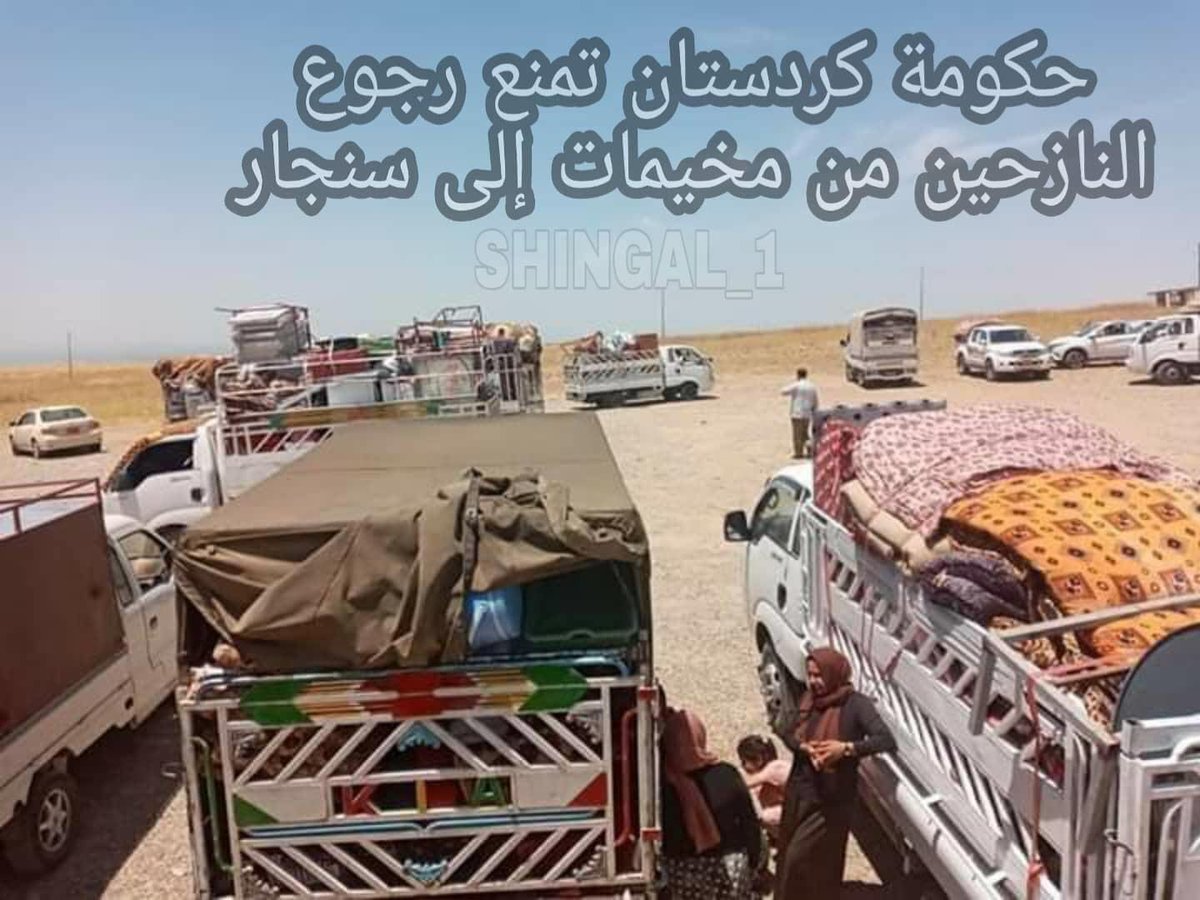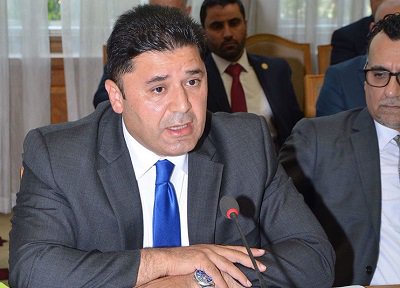
1) A tenacious investigative journalist has published the latest revelation of the corruption of billionaire KRG prime minster Masrour Barzani @masrour_barzani, namely an $18,300,000 property in Miami he secretly owns through an anonymous shell company.
2) While Kurds are so desperate to secure humane livelihoods and hopeful futures that they are willing to face dreadful conditions in Belarus and elsewhere, @ZackKopplin's crucial article details just one example of the PM’s corruption:
prospect.org/power/cowboy-d…
prospect.org/power/cowboy-d…
3) In reaction, a statement from the PM's office implied that Kopplin had an affair with @shnyar_Hassan, the wife of former MP Sarkawt Shams @MPSarkawtShams. Both are outspoken critics of the ruling cartel in Kurdistan.
a - rudaw.net/sorani/kurdist…
b - kurdistan24.net/ckb/story/2139…
a - rudaw.net/sorani/kurdist…
b - kurdistan24.net/ckb/story/2139…
4) The logic of the PM is perplexing here; it is unclear how an alleged affair, even if true, would discredit (or in any way be relevant to) Masrour's fraud and corruption. Kopplan has since stated that he has never even met Ms. Shnyar.
https://twitter.com/ZackKopplin/status/1468968647091650566
5) What's more serious here is that the PM's vindictive statement could put the life of a woman in jeopardy. Honor violence and other forms of violence against women are serious problems in Kurdistan that occur more frequently than is reported.
6) The occurrence of violence to restore honor often depends on individual family-level culture. Hopefully this isn't an issue for Ms. Shnyar; nevertheless, to publicly accuse a woman of sexual "misconduct" can have drastic consequences, and it is shocking to see a PM do this.
7) In other words, the PM's behavior is the tantrum of an angry child; rather than attempting to meaningfully refute the corruption allegations (which he cannot do), he now lashes out at his oppositional critics. This speaks volumes to his character.
8) In 2019, Michael Rubin @mrubin1971 published a chapter in the Routledge Handbook on the Kurds entitled "The Continuing Problem of KRG Corruption." This chapter gives a useful overview of some of the key issues regarding corruption among KRI elites.
9) One of the takeaways is the lack of robust legal infrastructure in the KRG for holding corrupt leaders accountable, combined with the absence of an appetite on the part of the authorities for pursuing the development of better laws (or for enforcing the laws that do exist).
10) For decades, Masrour Barzani, Nechirvan Barzani, Masoud Barzani, and a wide range of other family figures have pilfered public funds, robbing the Kurdish people as well as the Arabs and minorities of northern Iraq, to amass billions of dollars in personal wealth.
11) Last week, Masrour tweeted a video of himself crying and hugging the family members of dead peshmerga fighters. Masrour conducts this obligatory performance to convince the destitute that their patriotism still means something, while he grows his billions at their expense.
12) He tweeted: "Peshmerga sacrifices by families like Bayan xan—the lioness—keep our sacred cause alive.
To our Peshmerga heroes, you make us proud. We stand with you and will continue to support you -mb."
(The "-mb" means that he personally wrote this tweet, not his team.)
To our Peshmerga heroes, you make us proud. We stand with you and will continue to support you -mb."
(The "-mb" means that he personally wrote this tweet, not his team.)
13) His tweets are here:
a -
b -
a -
https://twitter.com/masrour_barzani/status/1466853724312289287
b -
https://twitter.com/masrour_barzani/status/1466778976664399876
14) It should be noted that while much KRG corruption is internal and involves Kurdish/Iraqi money, a significant portion also involves foreign investment and business. Whenever this occurs, an oil company or international business partner is complicit in perpetuating the abuse.
15) On the irony and hypocrisy of the U.S.’ unconditional support for the corrupt KRG cartel, Kopplin tweeted:
https://twitter.com/ZackKopplin/status/1468615168099815428
16) And in response to Kopplin's article, Erwin van Veen @ErwinVeen tweeted: "This article says as much about corruption in #Iraq's #KRI as it says about global complicity in hiding ill-gotten funds abroad."
17) I think it’s important to point out that the political campaign against Julian Assange (see @JA_Defence) and its related legal theater is about much more than the disclosure of foreign policy secrets; it is pushback against a challenge to the corporate anonymity that allows >
18) < the kind of corruption detailed by Kopplin to proceed unhindered. Without Wikileaks (and others unrelated to Assange who have followed him to facilitate major leaks like the Panama Papers and Pandora Papers), a great deal of discovered corruption would still be unknown.
19) Last tweet: Some tweets from @MPSarkawtShams in response to all this:
-
-
-
-
https://twitter.com/MPSarkawtShams/status/1468964409372405764
-
https://twitter.com/MPSarkawtShams/status/1468973367973666835
-
https://twitter.com/MPSarkawtShams/status/1468973940630605825
• • •
Missing some Tweet in this thread? You can try to
force a refresh










